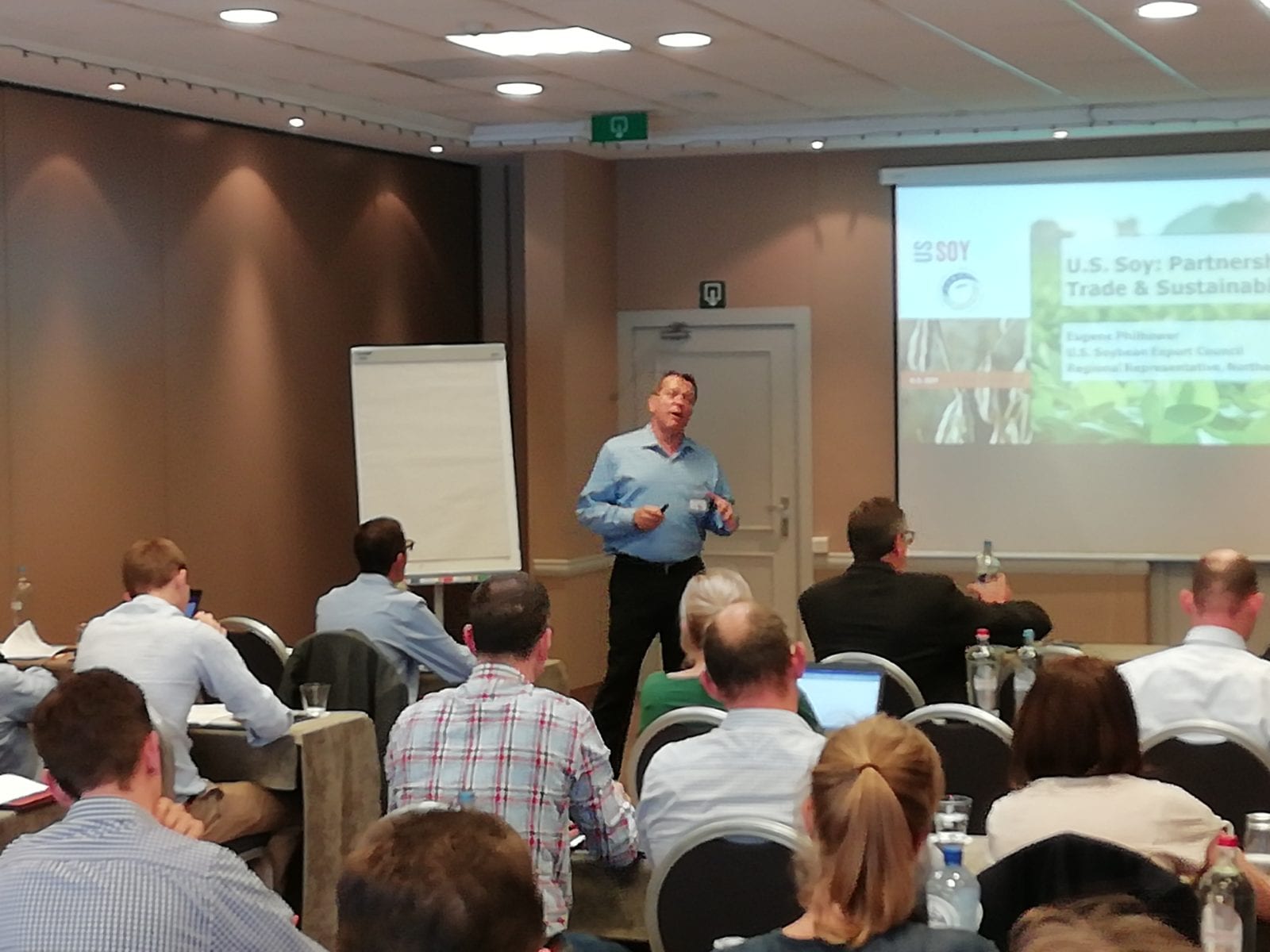Belgian Feed Association Members Hear about Sustainable U.S. Soy
- Category:
- General News
- Sustainability

On May 24, USSEC and the Belgian Feed Association (BFA) sponsored a “Sustainable Soy Study Day” outside of the historic city of Ghent. Forty contacts from the Belgian feed industry participated in the half day event.
Yvan Dejaegher, Executive Director of BFA (formerly known by its Dutch/French name of BEMEFA/APFACA) opened the conference by welcoming USSEC’s continued support of their organization. He said that this event was an opportunity for BFA members to hear the latest developments on a number of soy related issues of great importance to their industry.
USSEC’s Regional Representative Eugene Philhower gave a presentation on the production of sustainable soy in the U.S. and the U.S. Soy Sustainability Assurance Protocol (SSAP), conveying the commitment of American soybeans producers to the principles of sustainability. Philhower explained that in the U.S. context, our producers focus on the environmental aspects of sustainability, including improved soil and water management, conservation tillage and reduction of energy inputs. While the European focus on sustainable soy was centered on deforestation in South America, Mr. Philhower noted that the acres of forests in the United States continue to increase every year. He concluded by noting that if the European feed industry was looking for a sustainably produced, high quality product from a reliable supplier, they should look to the United States as their source.
Rory Deverell from FCStone made a presentation on the current conditions in the global commodity markets, highlighting some important areas of concern, from weather conditions in Argentina to possible trade disruptions between the U.S. and China. He concluded that the need for appropriate risk management is more important than ever.
Karel Van Bommel from the European Commission’s DG Agriculture explained the Commission progress in developing a protein plan for the EU. They have solicited public comment and will be issuing a draft report later this summer with final adaption by the Agricultural Council expected by the end of the year. The effort is to promote the development of local protein sources for the EU.
Johan Van Waes, a Belgian research scientist, next described efforts to increase the production of soybeans in Belgium. Dr. Van Waes recognized the challenges they face in terms of protein content, productivity, and the growing conditions. When asked if GM products were the answer, he expressed the point that GM might be more important for other products such as potatoes which face specific disease and pest challenges but that increased soy can be achieved through use of existing varieties.
U.S. Department of Agriculture (USDA) export data indicates that the U.S. exported more than $68 million in soybeans and soybean meal to Belgium in 2017. The event was successful in bringing together key industry contacts for an informative discussion on current issues. It reinforces the strong ties between USSEC and Belgian Feed Association.